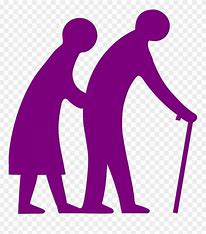Introduction
Elderly care, also known as geriatric care or senior care, encompasses a range of services and support systems designed to meet the unique needs of aging populations. With global demographic shifts leading to larger proportions of elderly individuals, providing quality care for seniors has become a critical priority. In this article, we will explore the importance of elderly care, key aspects of comprehensive care, challenges faced by aging populations, and the significance of promoting health, well-being, and dignity in the elderly.
Importance of Elderly Care
A. Aging Population Trends The world is witnessing a significant increase in the elderly population due to improved healthcare, advancements in medical technology, and changing demographic patterns. This demographic shift highlights the importance of addressing the specific needs of older individuals and ensuring their well-being and quality of life.
B. Meeting Health and Social Needs Elderly care focuses on meeting the health and social needs of older adults, including medical care, assistance with daily activities, social interaction, and emotional support. Providing comprehensive care enhances the physical, mental, and emotional well-being of seniors, promoting healthy aging and active participation in society.
Key Aspects of Comprehensive Elderly Care
A. Healthcare and Medical Services Access to quality healthcare is crucial for older adults. Geriatric healthcare providers specialize in managing age-related conditions, promoting preventive care, managing chronic diseases, and addressing the unique healthcare needs of seniors. Regular health assessments, screenings, and appropriate medical interventions are essential components of elderly care.
B. Assistance with Daily Activities Many older adults require assistance with activities of daily living (ADLs), such as bathing, dressing, eating, and mobility. Elderly care services include support from caregivers, home healthcare aides, or residential facilities to ensure seniors can maintain their independence and perform daily tasks with dignity.
C. Social Engagement and Emotional Support Social isolation and loneliness can have detrimental effects on the well-being of older adults. Elderly care services aim to combat social isolation by providing opportunities for social engagement, community involvement, and meaningful connections with others. Emotional support, counseling, and mental health services also play a vital role in promoting mental well-being among seniors.
D. Home Modifications and Safety Measures Creating a safe living environment is crucial for elderly individuals to prevent accidents, falls, and injuries. Elderly care may involve home modifications, assistive devices, and safety measures to promote a senior-friendly living space and reduce potential hazards.
Challenges in Elderly Care
A. Age-Related Health Conditions The aging process is often accompanied by an increased risk of age-related health conditions, such as chronic diseases, cognitive decline, mobility limitations, and sensory impairments. Providing specialized care and management for these conditions poses challenges that require multidisciplinary approaches and specialized healthcare providers.
B. Caregiver Burden and Support Family members and informal caregivers play a significant role in elderly care. However, caregiving responsibilities can be physically and emotionally demanding, leading to caregiver burden and burnout. Support programs, respite care options, and caregiver training are crucial in ensuring the well-being of both seniors and their caregivers.
C. Financial Considerations Elderly care can be costly, especially for individuals with limited financial resources or inadequate insurance coverage. The high costs of healthcare, long-term care services, and medications pose financial challenges for many older adults and their families. Developing affordable care options and exploring financial assistance programs is essential to ensure equitable access to quality care.
Promoting Health, Well-being, and Dignity in the Elderly
A. Holistic Approach to Care Comprehensive elderly care should adopt a holistic approach that considers the physical, mental, social, and emotional aspects of well-being. This involves personalized care plans, preventive measures, health promotion activities, and support systems that address the unique needs and preferences of older adults.
B. Age-Friendly Communities Creating age-friendly communities is crucial for supporting the health and well-being of seniors. Age-friendly initiatives focus on improving accessibility, transportation options, social opportunities, healthcare services, and community engagement to enable older adults to live independently and participate fully in society.
C. Advocacy for Elderly Rights and Dignity Promoting the rights and dignity of older adults is fundamental in elderly care. This includes advocating for policies that protect seniors from abuse, neglect, and discrimination, as well as ensuring their access to quality healthcare, social services, and legal protections.
Conclusion
Elderly care plays a vital role in promoting the health, well-being, and dignity of aging populations. By addressing the unique needs of older adults through comprehensive care, support systems, and age-friendly initiatives, we can create a society that values and respects the contributions of seniors. Overcoming challenges in elderly care and prioritizing the health and well-being of older adults are essential for ensuring a fulfilling and dignified aging experience for individuals and society as a whole.

